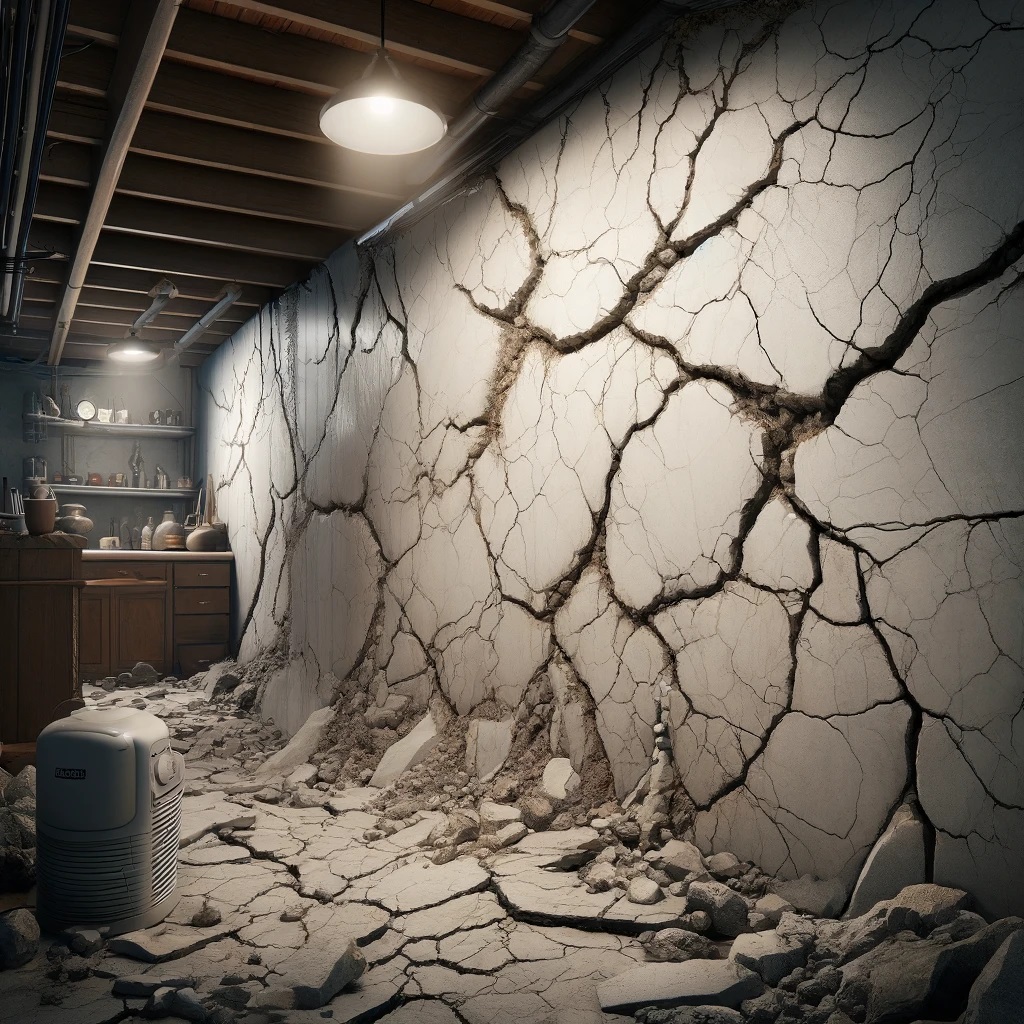Water Seepage in Sterling Heights MI
There’s nothing more distressing to a homeowner than to find out that their investment has been compromised. It can be difficult and expensive to recover from issues such as water seepage.
Many homeowners don’t realize that there are several measures that they can take to prevent water from entering their basements without having to spend a fortune. The following are some examples of inexpensive ways that you can prevent water seepage in your home:
-
Ensure proper drainage from the roof
Many homes suffer leakage problems in the spring when the rains begin. This is usually the result of poor drainage from the roof. If runoff from the roof drains near the foundation, it will cause an increase in hydrostatic pressure which will in turn cause a seepage problem in your basement.
It is important to have your downspouts and gutters checked and cleaned regularly. Ensure that they are in good condition and downspouts are draining water not less than 8 feet from the foundation.
-
Change the grading of your landscape
Water drains along the slope of the landscape. If your landscape is sloping toward your foundation, water is likely to collect at the foundation resulting in water seepage. Have the slope of your land assessed. You can change the grading of your landscape to ensure that water drains away from the foundation.
-
Invest in exterior drainage
Does water collect on the surface of your landscape? You can protect your landscape and your home’s foundation by simply installing a drainage system. If the water is collecting from your neighbor’s property, have a talk with them and collaborate in installing a drain to take care of the excess water.
-
Clear window wells
Window wells help to create a well-lit and ventilated basement. However, they can be the source of a seepage problem in the basement. This happens when debris is allowed to collect in the window well. Ensure that your window wells are cleared of debris regularly. This will ensure drainage of water that enters the window well.
-
Check caulking
Caulking around doors and windows prevents the penetration of water. It is therefore important to ensure that the caulking is in good condition. This will prevent the entry of water through the building’s envelope.
It is also important to ensure that penetrations such as gas, air conditioning and water pipes that are on the building envelope are well caulked or waterproofed.
Contact us today for more information!

Jeff’s passion for basement waterproofing can be traced back to his early days at Everdry Waterproofing. He spent significant time working in every department not only to learn and improve but to help those who worked with him advance both personally and professionally.
Jeff has worked in the Waterproofing industry for 35 years, gaining experience in marketing, sales, service, and installations. As a seasoned basement waterproofing professional, he is passionate about advancing his knowledge in waterproofing and developing his team. In addition to basement waterproofing, he is also a board member for a non profit that educates and protects consumers against unethical business practices. Outside of the office, Jeff enjoys travel, music, and time with his wife of 36 years and his two sons.
Curious about the brains behind the great content here? It’s me, Jeff Schleuning, with 35+ years of expertise in the basement waterproofing industry and a rich history of owning a Basement Waterproofing franchise in Michigan.
My journey has equipped my team and I with invaluable insights, enabling to craft content that resonates with the audience using industry-leading online tools. Incorporating tools like SEMRush, Google Keyword Planner, AI technologies like ChatGPT, Claude-2, Google Bard, and Grammarly, we ensure the content is not just engaging but also strategically aligned with market trends.







